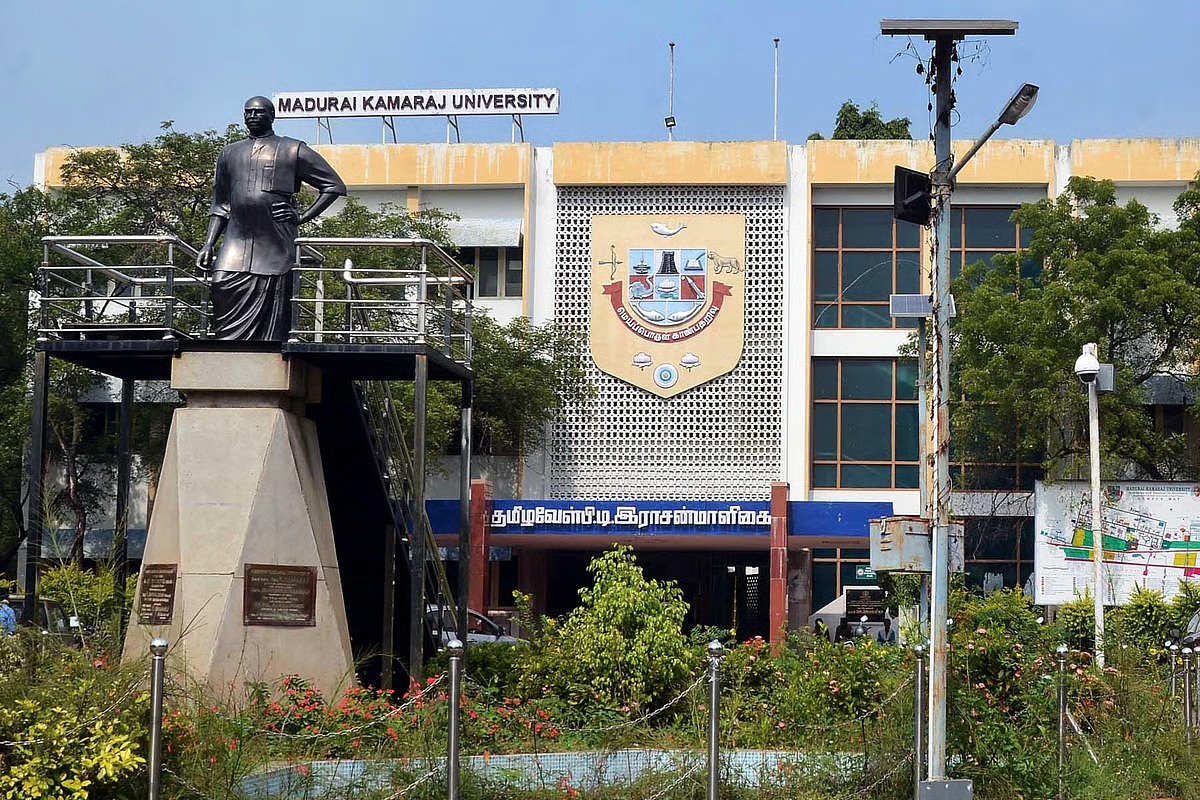K.L. Sharma, J.@mdashBoth the writ petitions Involve one and common question of law : whether an isolated post advertised for direct recruitment can be reserved for specified category or will be kept open for all.
2. In Writ Petition No. 3835 (S/S) of 1995, the Petitioner is working on the post of Mechanic Grade B in Electrical Department at Kamla Nehru Institute of Technology, Sultanpur since June, 1984. He made representations for his promotion to the post of Mechanic Grade. A Electrical, but the Registrar Issued a public advertisement No./Establishment/95 inviting applications for one temporary post of Mechanic Grade A (Electrical) besides other posts reserving the post for scheduled caste candidate. The grievance of the Petitioner is that a solitary post cannot be reserved for the scheduled caste candidates and he is entitled to be promoted thereto.
3. In Writ Petition No. 4069 (S/S) of 1995, the Petitioner being a backward candidate has been working as Junior Instructor (Workshop) in Mechanical Engineering Department since November 15. 1983. A vacancy of Senior Instructor arose and the Petitioner was asked to look after the duties of Senior Instructor, but he was not appointed as Senior Instructor (Workshop) even though he fulfilled all the qualifications. The Director issued an advertisement on 7.6.90 inviting applications from general candidates for the post of Senior Instructor (Workshop), but no appointment had been made, arid subsequently the Director had issued another advertisement on 14.2.95, but no appointment was made. The Registrar of the Institute again issued an advertisement on 29.9.95 reserving the post of Senior Instructor (Workshop) for scheduled caste candidates only.
4. The learned Counsel for the Petitioners has contended that the isolated post cannot be reserved for any special category and has to be kept open for all eligible candidates. The learned standing counsel for the opposite parties has replied that the post can be reserved for scheduled castes/scheduled tribes and other backward classes In view of the provisions of Section 3 of U.P. Public Services (Reservation for Scheduled Castes, Scheduled Tribes and other Backward Classes) Act, 1994.1, therefore, proceeded to examine the provisions of the aforesaid Act. Section 3 reads as follows:
3. Reservation in favour of Scheduled Castes, Scheduled Tribes and other Backward Classes.--(I) In public services and posts, there shall be reserved at the stage of direct recruitment, the following percentage of vacancies to which recruitments are to be made In accordance with the roster referred to in Sub-section (5) in favour of the persons belonging to Scheduled Castes, Scheduled Tribes and other Backward Classes of citizens,--
(a) in the case of Scheduled Castes Twenty-one per cent,
(b) in the case of Scheduled Tribes Two per cent,
(c) In the case of other backward classes of citizens Twenty-seven per cent:
Provided that the reservation under Clause (c) shall not apply to the category of other backward classes of citizans specified in Schedule II.
(2) If, even In respect of any year of recruitment, any vacancy reserved for any category of persons under Sub-section (1) remains unfilled, special recruitment shall be made for such number of times, not exceeding three, as may be considered necessary to fill such vacancy from amongst the persons belonging to that category.
(3) If, In the third such recruitment referred to in Sub-section (2), suitable candidates belonging to the Scheduled Tribes are not available to fill the vacancy reserved for them, such vacancy shall be filled by persons belonging to the Scheduled Castes.
(4) Where, due to non-availability of suitable candidates any of the vacancies reserved under Sub-section (1) remains unfilled even after special recruitment referred to in Sub-section (2), It may be carried over to the next year commencing from first of July, In which recruitment is to be made, subject to the condition that In that year total reservation of vacancies for all categories of persons mentioned in Sub-section (1) shall not exceed fifty per cent of the total vacancies.
(5) The State Government shall, for applying the reservation under Sub-section (1), by a notified order issue a roster which shall be continuously applied till it is exhausted.
(6) If a person belonging to any of the categories mentioned in Sub-section (1) gets selected on the basis of merit in an open competition with general candidates, he shall not be adjusted against the vacancies reserved for such category under Sub-section (1).
(7) If, on the date of commencement of this Act, reservation was in force under Government Orders for appointment to posts to be filled by promotion, such Government orders shall continue to be applicable till they are modified or revoked.
5. The use of word vacancies'' occurring in Sub-section (1) of Section 3 quoted above shows that there should exist more than one vacancy. It further indicates that the reservation has to be made in the vacancies and the number of vacancies to be reserved for a particular category has to be calculated on the basis of the specified percentage for each category in the vacancies to be filled in. By any method of calculation there cannot be any percentage for one vacancy for any particular class.
6. The learned standing counsel contended that the reservation has to be made on the basis of all the posts in the organisation/establishment as is indicated by the provision of Sub-section (5) of Section 3 quoted above, which empowers the State Government to Issue a roster, which shall be continuously applied till it Is exhausted. In my opinion, this contention is not correct. This Sub-section (5) makes itself subservient to Sub-section (1). It means that if no vacancy can be calculated on the basis of specified percentage for being reserved for a particular category, the question of issuing a roster will not arise at all. Therefore, the Government order dated October 10, 1994 issuing a roster of reservation in the vacancies to be filled by promotion shown by the learned standing counsel is not at all applicable to the solitary vacancy in question. The State Government can issue a roster of reserved vacancies only when reservation under Sub-section (1) is worked out. Against one vacancy advertised for direct recruitment no reservation can be worked out on the basis of the specified percentage for a particular category under Sub-section (1) of Section 3, then the State Government cannot exercise the power conferred by Sub-section (5). A careful reading of the entire Section 3 makes it clear that the reservation is confined to vacancies only. The reservation cannot be enforced against the posts already occupied by substantive members. No person occupying a post can be thrown out of employment in order to make room for a reserved candidate. The purpose of adequate representation in public services and posts can be achieved only by making appointments to the vacancies only in accordance with Section 3. Therefore, In my opinion, the provisions of the aforesaid Act do not prescribe reservation in a solitary vacancy and practically no reservation can be possibly made in a solitary vacancy.
7. The Hon''ble Supreme Court of India has also considered In the case of
8. Therefore, the principles enunciated by the Hon''ble Supreme Court of India unmistakably lead to the conclusion that if there is only one post in the cadre, there can be no reservation with reference to that vacancy either for recruitment at the Initial stage or for filling up a future vacancy in respect of that post. A reservation which would come under Article 16(4), pre-supposes the availability of at least more than one post in that cadre.
9. Therefore, for the aforesaid reasons, the reservation of the solitary post and advertisement for recruitment to the solitary vacancy made by the opposite parties are liable to be quashed. These posts will be kept open for all candidates who fulfil the qualifications and experience prescribed for the respective post. It is for the appointing authority to decide whether the post advertised for direct recruitment is to be filled by promotion of the eligible employees working on the lower post or to advertise it as per rules of service for direct recruitment of eligible candidates of all categories. Therefore, the opposite parties will have to issue a fresh advertisement In case they decide to fill the solitary vacancy by the direct recruitment inviting applications from all kinds of candidates who fulfil the prescribed qualifications and experience. Thus the question which arose In these writ petitions, is accordingly answered.
10. The Writ Petitions Nos. 3835 (S/S) of 1995 and 4069 (S/S) of 1995 are partly allowed and the writ of certiorari is hereby issued quashing the advertisement No. VI. Bha/lsthapana/95, dated 29.9.95 published on 6.10.95 in Dainik Jagran reserving the vacancies of Mechanic Grade A Electrical and Senior Instructor (Workshop) for the candidates of scheduled caste only.

